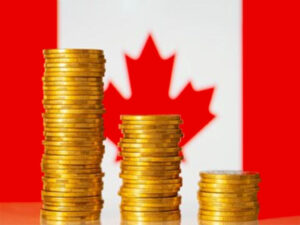During a presentation on the latest economic data and forecasts, the Minister of Finance and Deputy Prime Minister of Canada, Chrystia Freeland, also commented that they foresee budget deficits until 2027.
From her perspective, the increase in interest rates adopted by the Bank of Canada to reduce the strong rise inflation is slowing down the Canadian economy.
Within the forecasts, the most optimistic scenario includes moderate economic growth in 2023 with a reduction in the deficit for this fiscal year to 36.4 billion Canadian dollars (26,486 million USD). However, should Canada enter a recession in 2023, the deficit will stand at 49.1 billion Canadian dollars (35,727 million USD).
“Prime Minister Justin Trudeau’s government is bracing for a worsening economic situation both domestically and globally,” Freeland said. Precisely for this reason, a group of measures were announced this week, aimed at encouraging private sector investment along with the creation of a tax credit for clean energy.
The project contemplates up to 30 percent of the financing cost for solar, wind or small nuclear reactor energy initiatives.
On the other hand, a 2-percent tax will be imposed on the repurchase of shares by companies to encourage the reinvestment of profits in the company itself and its workers.
jrr/llp/rgh/att










